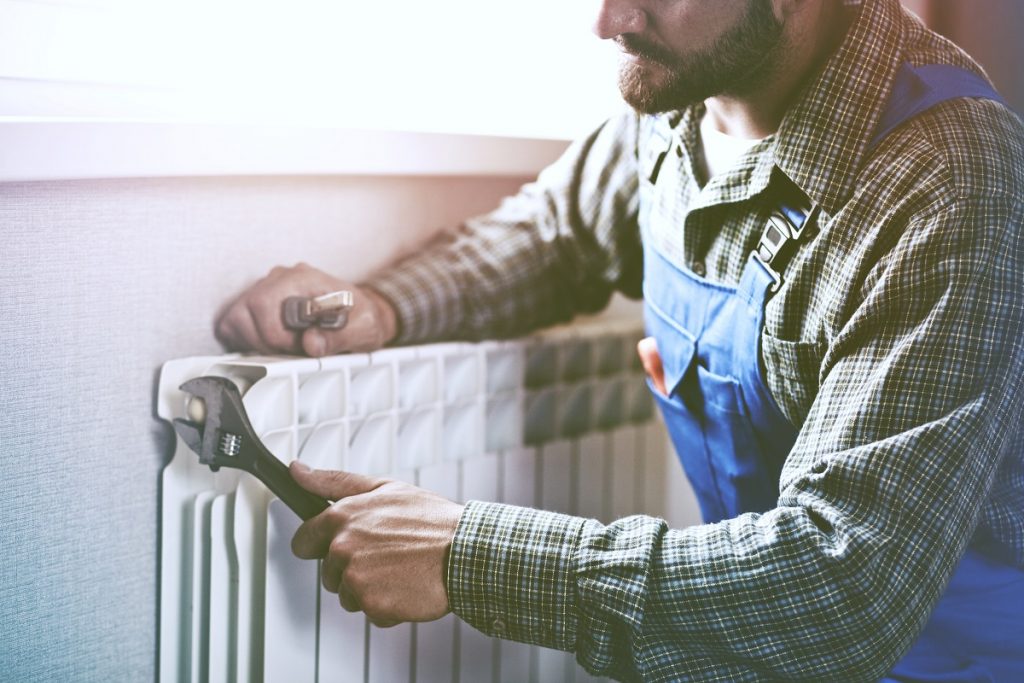- Home maintenance involves the timely replacement of entry points, roofs, and essential appliances for safety and efficiency.
- Quality doors and windows enhance security, reduce noise, and improve energy efficiency, boosting the home’s value.
- Roof replacement can prevent damage, increase property value, and enhance the home’s aesthetic appeal.
- Upgrading appliances like the HVAC, kitchen, water heater, and entertainment systems increases functionality and energy efficiency.
Regular maintenance and repairs at home are crucial not just for aesthetics but also for maintaining the structural integrity of the house and ensuring the safety of the inhabitants. According to the U.S. Bureau of Labor Statistics, the average American household spends around $1,105 yearly on home maintenance and repairs, a testament to its importance. Furthermore, a report by Harvard’s Joint Center for Housing Studies states that spending on home improvements and repairs grew more than 3% annually in 41 out of 50 major metro areas in recent years, indicating a growing awareness about the significance of home maintenance. Neglecting these crucial tasks can result in significant long-term costs, often exceeding the initial maintenance and repair expenses.
However, few know that replacements or upgrades are as necessary as regular maintenance for a safe and comfortable home. Certain things probably need replacing at home after a certain period to ensure the overall well-being of the household.
Entry Points
One vital aspect of home maintenance and upgrade is the timely replacement of entry points, including doors and windows. These elements are not just crucial for the aesthetic appeal of a home but also significantly impact its security, energy efficiency, and overall value. Quality doors and windows are instrumental in preventing unauthorized entries, reducing noise pollution, and improving insulation. If your doors or windows show signs of aging, such as cracks, drafts, or difficulty opening and closing, it may be time for replacements.
Investing in residential glass replacement services can provide a modern, energy-efficient solution. According to the U.S. Department of Energy, heat gain and loss through windows are responsible for 25%–30% of residential heating and cooling energy use. You can significantly reduce your energy bills by installing modern, energy-efficient windows. Similarly, a sturdy and stylish door can elevate your home’s curb appeal while enhancing its security. Therefore, it is advisable to consider professional residential glass replacement services for an optimal, long-lasting, and cost-effective solution.
Roof

The roof is arguably one of the most critical components of a home, providing shelter, insulation, and protection against the elements. Over time, however, it is prone to wear and tear due to constant exposure to the weather. Ignoring warning signs of roof damage can lead to leaks and structural damage and, ultimately, compromise your home’s safety and integrity.
A typical asphalt shingle roof, common in the U.S., lasts about 20 to 25 years. But this lifespan can be shorter if the new roof was installed over an old one, requiring replacement sooner. Some telltale signs that your roof needs replacing include curling or buckling, roof valleys, missing shingles, chimney flashing, shingle granules in the gutters, sunlight coming through the roof boards, and an old roof. If you notice any of these signs, consulting a professional for a roof inspection should be your next step.
Roof replacement can initially seem like a hefty investment, but considering the potential savings from prevented damage to other parts of your home, it’s well worth it. Moreover, a new roof can significantly boost your property’s value and aesthetic appeal. Therefore, timely roof replacement is essential for responsible home ownership and maintenance.
Essential Appliances

Maintaining and, when necessary, upgrading essential appliances contributes significantly to your home’s functionality, convenience, and energy efficiency. Aging appliances can become energy inefficient, result in frequent breakdowns, or simply fail to deliver their intended functionality, affecting the day-to-day operation of your home. Upgrading to new, more efficient models can reduce energy use, decrease maintenance and repair costs, and improve your quality of life.
HVAC System
A critical example is the Heating, Ventilation, and Air Conditioning (HVAC) system. An outdated HVAC system can lead to high energy bills and less efficient heating and cooling. Modern HVAC systems are designed with energy efficiency in mind, helping homeowners save significantly on energy costs while enhancing indoor comfort levels. If your system is over ten years old or frequently requires repairs, it may be time to consider an upgrade.
Kitchen Appliances
Appliances like the refrigerator, dishwasher, and oven could benefit from an upgrade in the kitchen. Older refrigerators and dishwashers can be energy hogs, and newer models often have energy-saving features. For example, modern refrigerators use about 15% less energy than models from a decade ago. Upgrading your oven to a model with a convection feature can also reduce cooking times and energy use.
Water Heater
Another significant appliance to consider is the water heater. Older water heaters may not only be less efficient but could also be a potential safety hazard if not appropriately maintained. A new, energy-efficient water heater can provide better temperature regulation and lower operating costs. Tankless water heaters that warm water only as needed can be 24%–34% more energy-efficient than traditional storage tank water heaters for homes, which might waste over 41 gallons of hot water daily.
Entertainment Systems
Lastly, entertainment systems like televisions and sound systems may need upgrading after a certain period to keep up with technological advancements. Older models can be energy inefficient and lack modern features, making them less convenient.
Final Thoughts
While regular maintenance and repairs are crucial for a safe and comfortable home, replacements or upgrades can offer significant long-term benefits. Responsible homeownership involves staying up-to-date with necessary replacements and upgrades for a safe, efficient, and comfortable living space. By investing in timely replacements or promotions, you can avoid more significant expenses that arise from neglecting these essential tasks.

